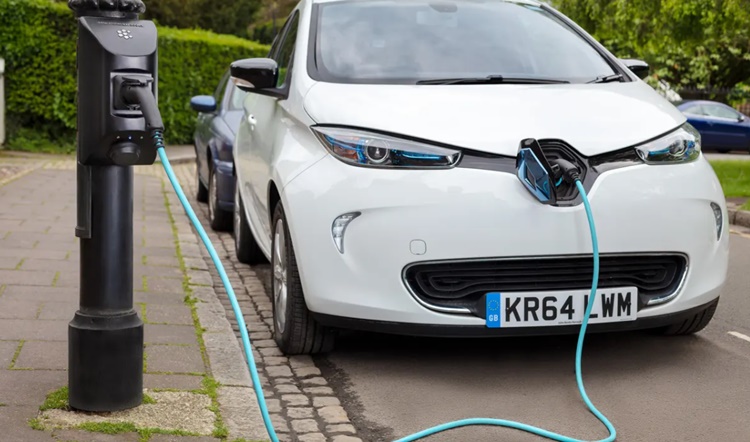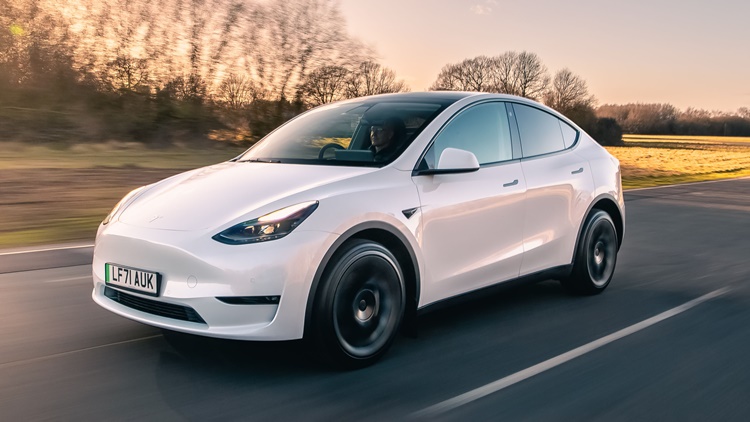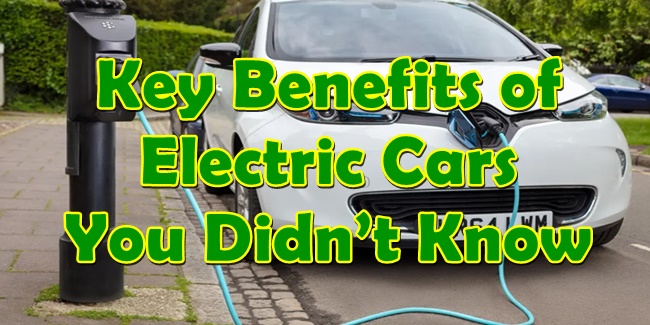Hidden Advantages of Electric Cars
ELECTRIC CARS – Electric vehicles present numerous benefits, such as their eco-friendly operation, affordability, and impressive performance characteristics, rendering them an increasingly appealing choice for modern transportation.
Electric cars offer numerous advantages over gasoline-powered vehicles, with many of these benefits centering on the convenience of home charging and the simplicity of refueling, much like plugging in your smartphone. Now, let’s explore deeper into the various merits of electric vehicles, encompassing their positive effects on the environment, cost savings, performance, and technological advancements. Also, check out these cheap electric cars you can buy in 2023.
The domain of electric vehicle technology has witnessed rapid advancements since its inception, presenting a diverse range of plug-in hybrid and fully electric vehicle options in today’s market. Electric vehicles (EVs) can be powered either partially or entirely by electricity, resulting in reduced operational costs due to fewer mechanical components requiring maintenance. Additionally, EVs are notably environmentally friendly, as they rely minimally or not at all on fossil fuels.

Benefits of Electric Vehicles
1. EVs have zero tailpipe emissions.
In contrast to conventional internal combustion engines that depend on gasoline or diesel, fully electric vehicles produce no emissions from their tailpipes. This implies that they do not release harmful pollutants into the atmosphere. Instead, they operate using lithium-ion batteries, which are emission-free and can be recharged without causing harm to the environment.
2. EV battery production can be environmentally friendly.
Although the production of EV batteries can potentially contribute to air pollution, efforts are being made to address this issue. Most emissions associated with EVs occur during the battery manufacturing process. Nevertheless, industry standards are evolving to reduce these emissions, making EV battery production more environmentally sustainable.
3. EV makers employ environmentally friendly materials.
Lightweight electric vehicles have extended ranges and emit fewer carbon emissions. To achieve this, manufacturers are increasingly incorporating recycled and organic materials that are not only environmentally friendly but also durable and efficient. This shift toward sustainable materials enhances the overall eco-friendliness of EVs.
4. Low running costs
Electric vehicles offer several cost advantages in comparison to traditional internal combustion engine (ICE) vehicles. Here are key factors contributing to the cost-effectiveness of EVs:
Price
There is a range of electric and hybrid electric vehicle models, such as the Chevrolet Bolt, Ford Fusion Energi, Honda Clarity, and Mitsubishi Outlander, available for under $37,000. In addition to these, the Nissan LEAF and Toyota Prius Prime are affordable options priced below $30,000. The used electric car market is also growing, with many options priced lower than new ones. While this might initially appear more expensive than purchasing a new gasoline-powered vehicle, the long-term savings can be substantial.
Fuel
The typical American household allocates approximately one-fifth of its income to transportation expenses. Electric cars can lead to annual savings of around $1,000 in fuel costs. Charging an electric vehicle with a 60-kilowatt-hour (kWh) battery, offering a range of over 230 miles, at home costs less than $8. Moreover, electricity prices tend to be more stable compared to the fluctuating costs of oil, making it easier to budget for an electric vehicle on an annual basis.
Maintenance
Maintaining an electric car, especially one powered by batteries, is significantly more cost-effective than maintaining a traditional fossil fuel vehicle due to its fewer moving components. Electric vehicles typically feature single-speed transmissions and regenerative braking, which prolongs the lifespan of brakes and eliminates the need for oil changes. In the United States, automakers are required to warranty electric vehicle batteries for at least eight years or 100,000 miles. In practice, many EV battery packs have exceeded 200,000 miles of use with less than a 10% decline in capacity. Typically, the only routine maintenance expenses involve replacing windshield wipers and tires.
5. Price
Numerous electric and hybrid electric vehicle models are available for $37,000 or lower, and certain models, such as the Nissan LEAF and Toyota Prius Prime, can be acquired for under $30,000. Furthermore, the used electric car market presents affordable choices. Although the initial buying price may appear greater than that of a gasoline-powered vehicle, the potential for significant long-term savings is noteworthy.

6. Fuel
Electric vehicles offer potential annual savings of approximately $1,000 in fuel expenses compared to traditional gasoline-powered cars. Charging an electric vehicle with a range exceeding 230 miles at home typically costs less than $8. Furthermore, electric car owners can benefit from more stable electricity prices, making budgeting easier when compared to the fluctuating oil prices affecting gasoline costs.
7. Maintenance
Electric cars, particularly those relying on batteries, come with significantly reduced maintenance expenses due to their simplified design featuring fewer moving components. These vehicles often incorporate single-speed transmissions and regenerative braking systems, leading to extended brake lifespans and eliminating the need for oil changes. Additionally, many U.S. automakers offer warranties for electric vehicle batteries, providing peace of mind to owners.
8. Electric Vehicle Performance
Electric vehicles (EVs) can achieve rapid acceleration without requiring gear shifts, providing instantaneous access to 100% of their torque. Numerous EVs can reach 0 to 60 mph in under 6 seconds, with the Tesla Model S P100D setting a remarkable record of 2.5 seconds, solidifying its position as one of the world’s fastest production cars. Thanks to the even distribution of batteries beneath the vehicle’s floor, EVs enjoy a low center of gravity and exceptional balance, making them both sporty and efficient, especially in urban environments where they utilize regenerative braking to capture and store energy from braking maneuvers.
9. EVs can usually use HOV lines and get the best parking spots.
Depending on your location, owning an electric vehicle (EV) can grant you access to high-occupancy vehicle (HOV) lanes, regardless of your car’s size or the number of occupants. HOV lanes are typically reserved for vehicles with a driver and one or more passengers.
Furthermore, in certain areas, electric vehicles can access premium parking spots often marked with green paint, exclusively reserved for EVs. In some regions, hybrid or fully electric cars may even enjoy complimentary parking privileges.
10. EVs are quieter than cars that run on gas.
Internal combustion engines are known for their noise and require an entire exhaust system to mitigate their sound levels. Conversely, all-electric engines operate quietly, delivering a noise-free driving experience while simultaneously reducing noise pollution.
It’s important to note that despite their quiet operation, electric vehicles do not compromise on power or speed, as they can instantly harness electrical energy to provide 100% power at 0 revolutions per minute (RPM).

